Sure, scriptural people had difficult trials but after their successful outcomes, they lived happily ever after, right?
After Noah left the ark, he never struggled anymore, right? After Daniel came out of the lion’s den, everyone loved and respected him from that point on, didn’t they? After Ruth became engaged to Boaz, didn’t she live a charmed, peaceful life ever after?
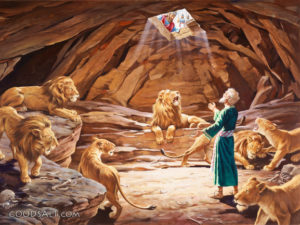
Daniel in the Lion’s Den
There are people with pretty full scriptural stories. We get great insight into the tortured souls and trials of David and Saul. We meet both Almas at the time of their conversions and read how they spent the rest of their lives. Nephi and Abrahams’ stories began as young men and the narrative continues to their death. Samuel and Samsons’ stories began prior to their birth and continue through their death.
On the other hand, I want to know how Hagar survived and where she went with Ishmael. I want to know how Ham and Egyptus met. I want to know what Bathsheba’s mom thought. I want to know what happened to Balaam’s talking donkey.
Did Abish live her whole life as a servant? Was Sarai sad to leave her family in Jerusalem? How did Abinadi’s family hear the news of his death? Were Mormon’s wife and daughters captured by Lamanites? How did the Lord call Samuel the Lamanite to go to the Nephites? How long did Tabitha live after Peter raised her from the dead?
Asenath’s Apocryphal Backstory
I’ve always wanted to know more about Joseph and Asenath’s story. I recently found apocryphal writings about Asenath and eagerly read and read and read.
According to that history, the Priest of On adopted Asenath after she arrived in Egypt. She was the daughter of Dinah and Shechem. Dinah’s brothers wanted to kill the baby resulting from Dinah’s rape, but their father Jacob prevented the death. He placed his family’s amulet around Asenath’s neck—a pendant inscribed with Holiness to the Lord. Jacob then gave the baby to traders who took her to Egypt and sold her to her adoptive family. Joseph was 12.
Continuing the story, Asenath became a great beauty and the pride and joy of her family. Her father’s priestly life afforded great riches. The son of Pharaoh heard tales of her beauty and when he saw her for himself, he immediately asked his father for her hand. Pharaoh agreed she was beautiful, but felt annoyed that his son wanted a non-royal wife, and refused the marriage.
Asenath, frustrated by the onslaught of suiters, spent time happily preserving her virtue alone in her tower.
While gathering corn towards the end of the years of plenty, Joseph visited her town and sent messengers asking for hospitality from Asenath’s father, which was happily granted. While repulsed by what she knew of Joseph’s background–assaulting Potiphar’s wife–Asenath couldn’t contain her curiosity and watched Joseph’s approach from her tower. Smitten instantly by the light and beauty of his person—he looked like the son of god—she decided to attend the welcoming feast.
Finding the One True God
Somehow, she asked her father to ask Joseph to ask her to marry him. Joseph politely refused saying he worshipped the one true God and could never marry a pagan girl out of the covenant. That devastated Asenath. She’d never faced rejection and had never been considered anything but virtuous and good.
She had a crisis of faith, locking herself in her tower, fasting for seven days, while her family travelled around the countryside gathering corn with Joseph. She prayed to the one true God, repented of her sins, and destroyed her idol room.
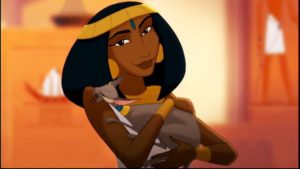
Asenath from “Joseph King of Dreams”
In one account, at the end of seven days, an angel looking like Joseph appeared to her and taught her about Jehovah and the covenant. An angel also appeared to Joseph and explained Asenath’s lineage. Joseph quickly returned to take her as his bride.
In another account, as Joseph and entourage paraded through the town leaving the area, Asenath joined the onlookers on the side of the road. Desperate to give Joseph something and only having her amulet, she threw it to Joseph. He caught it and immediately recognized the inscription as being from Jacob’s house. He realized Asenath’s true identity. They married, much to the chagrin of Pharaoh’s son.
According to these apocryphal stories then, when Jacob and family settled in Egypt, they found two lost family members. Asenath isn’t named in Jacob’s posterity, numbering 69, when they leave for Egypt, but the scripture says he has 70 souls in Egypt. So some scholars believe that verifies the Asenath story.
So Joseph and Asenath live a trial-free, perfectly charmed rest-of-their-life, right?
Fear and Jealousy Conspire Again
No, no, no. There’s more family intrigue. Pharaoh’s son, who apparently didn’t have a name, pined and languished in his unrequited love for Asenath. He approached the sons of Leah with a plan to kill Joseph, so he could have Asenath. They said no way. Levi said they worshipped the Most High God and why would they do wickedly if the Lord could exact His own revenge? A man of God did not return evil for evil. Levi advised Pharaoh’s son to forget the plan or they’d take up swords against him to defend their brother’s life.
However, Pharaoh’s servants told him that Joseph’s brothers Dan and Gad nervously anticipated Jacob’s death because they feared what revenge Joseph would exact against them for selling him into slavery. The prince summoned them by night and confided that he overheard Joseph tell Pharaoh that as soon as Jacob died, he would kill Dan and Gad. This played right into the brothers’ fears. They asked what they should do.
Pharaoh’s son promised to send an army to help kidnap Asenath and he would marry her. He also promised to kill his dad because his dad was like a father to Joseph. The brothers overheard Asenath talking about going to their country home the next day, so the three plotted to ambush Asenath and kill Joseph and his sons while mourning Asenath.
Pharaoh’s son went to kill his father, but Pharaoh’s guards wouldn’t let him in the room. Pharaoh wasn’t feeling well and commanded that no one enter his bedroom, even his eldest son. So Pharaoh’s son went away angry. First plot foiled.
Apparently, Dan and Gad told told Naphtali and Asher their plot. Horrified, the other brothers asked why they kept plotting against Joseph who God obviously protected and prospered. Still convinced Joseph will kill them, they said they had to strike first to save their own skin. Naphtali and Asher joined the conspiracy because of Pharaoh’s son’s words to Dan and Gad.
Asenath’s Deliverance
Asenath felt uncertainty as she prepared to leave for the country and asked Joseph to accompany her. He said she would be fine and said that he had to distribute corn so nobody died. She went on her way with Benjamin and came to the ambush point where Pharaoh’s son’s men were hiding. She fled away and right into Pharaoh’s son’s kidnap spot. Benjamin fought to protect Asenath and threw a round stone at Pharaoh’s son’s head, leaving him half-dead.
Meanwhile, Levi, designated as a prophet, foresaw Asenath’s attack, mobilized his brothers and they went to the rescue. The six sons of Leah killed 2,600 men. Realizing the plan was decimated and they would be totally outed, the four sons of Jacob’s concubines desperately decided to kill Asenath and Benjamin and run for their own lives.
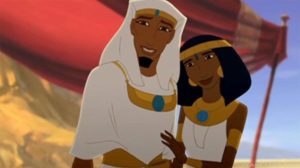
Joseph and Asenath from the movie “Joseph King of Dreams”
Asenath saw them as they approached her chariot, swords drawn and covered in blood. She prayed to God “O Lord my God, that didst quicken me from death, that didst say to me, ‘Thy soul shall live forever,’ deliver me from these men.” Her brother-in-law’s swords fell from their hands, reduced to dust.
Seeing that God fought for Asenath, they pled for their lives, worshipping her. She told them that because she and their brothers worshipped God, they did not repay evil for evil. She told them to hide in the woods while she talked to the other brothers arriving shortly. She diffused their anger.
As they all chatted, Pharaoh’s son regained consciousness. Benjamin took Pharaoh’s son’s sword, preparing to slay him. Levi rushed over and said that they did not repay evil for evil. If God willed Pharaoh’s son to die, then he would die. They cleaned the prince up and Levi took him home to Pharaoh, explained the situation and left. Three days later the prince died.
Pharaoh died and left his kingdom and dominion to Joseph. Joseph reigned for 48 years and then bequeathed the kingdom to Pharaoh’s grandson.
Just like Joseph’s biblical account, Asenath’s apocryphal stories demonstrate that God remembers His children. He knows where we are. He prepares our way. He orchestrates our deliverance.
God’s Deliverance
Asenath’s stories teach me that I can strive for virtue under any circumstance. She was conceived in violence. Her family abandoned her. But her goodness shone brightly before her newfound conversion. When she saw the error of her limited beliefs, she changed immediately. She found deliverance. She spoke to God and He spoke to her. She remembered answers to prayers.
The stories remind me that fear and anger blinds judgment and truth. Unchecked jealousy leads to murderous intent. Conversely, humility opens the door for revelation and confidence. Revelation to identify personal sin, enable repentance and sanctification, and receive the spirit of prophesy. Confidence gained allows us to call upon and count on God’s power.
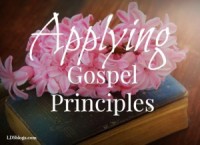
To read more of Delisa’s articles, click here.
From this story, repeated over and over, I learn that a man or woman of God does not repay evil for evil to any man. True faith in God, sets me free from exacting revenge, because I expect God to work His own judgment in His own way and timing.
Asenath did not ask God to strike the brothers dead. She prayed for deliverance. The deliverance God provided enabled reconciliation and forgiveness for all. It was a complete and true deliverance. He provides complete and true deliverance to us today!
About Delisa Hargrove
I am a member of The Church of Jesus Christ of Latter-day Saints. I have moved 64 times and have not tired of experiencing this beautiful earth! I love the people, languages, histories/anthropologies, & especially religious cultures of the world. My life long passion is the study & searching out of religious symbolism, specifically related to ancient & modern temples. My husband Anthony and I love our bulldog Stig, adventures, traveling, movies, motorcycling, and time with friends and family.

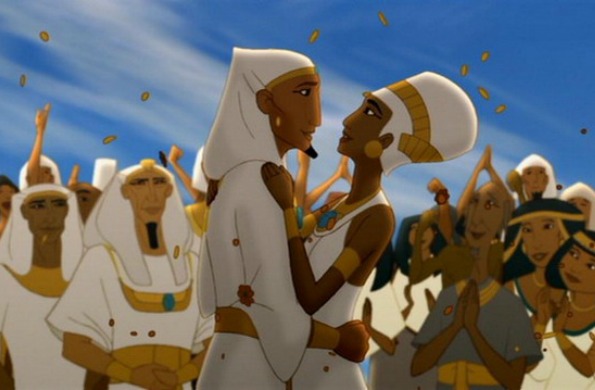


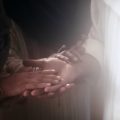


Going in to a court battle this was a good reminder to not repay evil for evil. The Lord knows me and I will trust in His deliverance.
Reading this so long after that court battle, I know that you repaid evil for good. What a good example of standing for the right with honor and showing everyone it was possible!!
Can you tell me where you got this information? I would like to study more about this couple.
If you search “Asenath,” your search engine should bring up some interesting links. Here is a link to one of the apocryphal sources I read.
http://www.pseudepigrapha.com/pseudepigrapha/TheStoryOfAsenath.html
Hope this helps your search and study! She is such a fascinating woman!